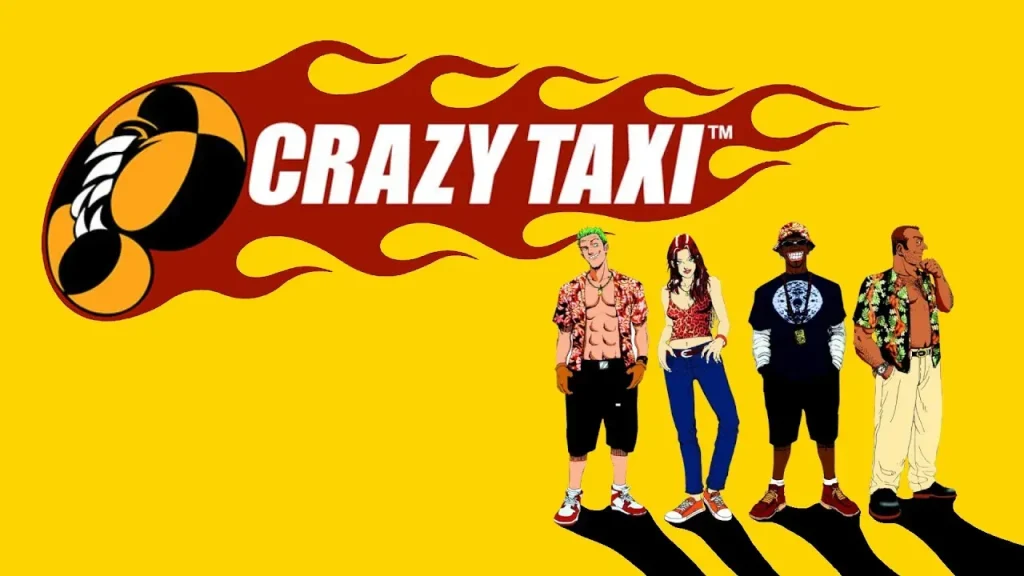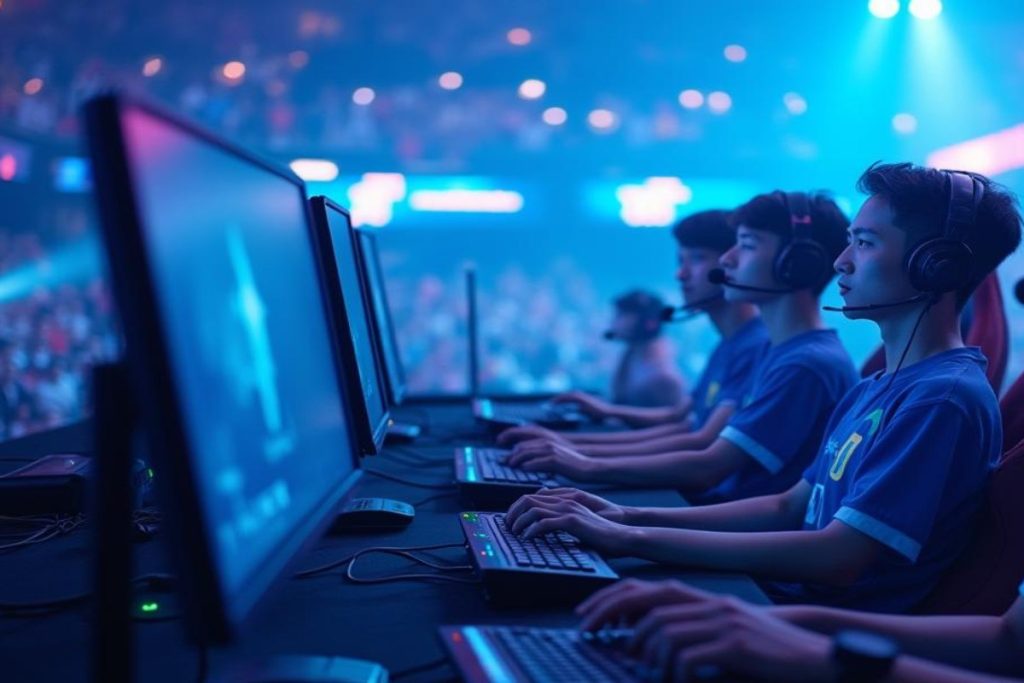Sega live-service games represent a pivotal area for the company as it navigates significant challenges within the gaming industry. With Games as a Service (GaaS) becoming a dominant force, Sega strives to leverage this model to ensure growth and competitiveness, especially after the strategic acquisition of Rovio in 2023. Sega is keenly aware of the recent mobile gaming growth and its implications for franchises such as Sonic, particularly with the pending release of Sonic Rumble, a party game designed to captivate audiences globally. However, the company acknowledges that establishing a robust GaaS business is no simple feat, as competitors with proven records continue to thrive. As they forge ahead, Sega’s commitment to crafting engaging content and expanding their community-oriented initiatives will be essential to overcoming the gaming industry challenges they face.
In the world of interactive entertainment, Sega’s ventures into continuous gaming experiences highlight a renewed focus on live-service platforms. These titles, often referred to as GaaS, promise ongoing content updates and player engagement, driving community activity and loyalty. With their recent acquisition of Rovio, the company aims to tap into mobile gaming’s explosive potential, looking to create compelling offerings like Sonic Rumble. While the transition poses numerous challenges, particularly in seeking profitable models amidst a competitive ecosystem, Sega’s strategic vision seeks to redefine how players interact with their favorite characters and game mechanics. By embracing innovative approaches and aligning with global market trends, Sega is setting the stage to overcome past hurdles and capture the hearts of a diverse player base.
The Growing Significance of Live-Service Games in the Gaming Industry
Live-service games, or Games as a Service (GaaS), have emerged as a dominant force in the gaming industry, substantially impacting player engagement and revenue generation. This model allows developers to create a continuous flow of content, keeping players invested in the game long after the initial purchase. According to industry stats, live-service games can lead to up to four times more revenue than traditional standalone games, a trend that has caught the attention of companies worldwide. For Sega, the challenge lies in catching up to competitors who have successfully established strong GaaS frameworks.
Just as Shuji Utsumi pointed out, Sega’s efforts to penetrate the live-service market include strategic acquisitions and innovative game development. The shift toward live-service titles signifies not only a change in how games are produced and experienced but also in the mindset of gamers who increasingly expect regular updates and community-driven content. With a robust GaaS strategy, Sega can better utilize its beloved franchises, like Sonic, in fresh and engaging ways, potentially transforming their gaming portfolio.
Sega’s Acquisition of Rovio: A Strategic Move Towards Live-Service Success
Sega’s recent acquisition of Rovio, the developer behind the iconic Angry Birds franchise, underscores its commitment to establishing a foothold in the mobile gaming sector and advancing its GaaS offerings. This acquisition grants Sega access to Rovio’s extensive knowledge of mobile gaming dynamics, as well as strong intellectual properties that can be integrated into new titles. With Rovio’s expertise, Sega aims to enhance its GaaS portfolio, particularly through mobile games like Sonic Rumble, which is set to blend classic characters with innovative gameplay mechanics.
However, the road ahead is not without its challenges. Utsumi’s acknowledgment of the difficulties in establishing a global GaaS presence highlights the competitive nature of the industry. As the mobile gaming market continues to expand, especially in emerging regions like the Middle East and Africa, Sega must harness the full potential of this acquisition, navigating both the opportunities and challenges presented by live-service game development in a rapidly evolving landscape.
Sonic Rumble: Sega’s Bold Venture into GaaS Gaming
Sonic Rumble represents a pivotal step for Sega as it attempts to captivate audiences in the live-service gaming market. Scheduled for release under the guidance of Rovio, this mobile party game aims to combine the iconic Sonic franchise with engaging multiplayer experiences. Unlike many competitors, Sega has taken a firm stance against gacha mechanics in Sonic Rumble, which reflects their understanding of Western gaming preferences and illustrates their commitment to developing quality content without exploiting monetization schemes.
The development of Sonic Rumble showcases Sega’s strategic pivot in aligning its beloved IPs with current gaming trends. As players hone their skills in competitive environments and seek out shared experiences, Sonic Rumble aspires to create a vibrant community around its gameplay. By offering regular updates and expansions, Sega plans to maintain player interest and reinforce its GaaS model’s appeal. This approach is essential not only for the game’s success but also for positioning Sega as a competitor in the live-service arena.
Challenges in the Gaming Industry: Sega’s Path Forward
The gaming industry is rife with challenges, especially when it comes to launching successful live-service games. As Sega navigates this landscape, it faces obstacles such as competition, shifting consumer preferences, and the need for constant innovation. Many companies, including Sega, have experienced setbacks due to game cancellations or poor financial performance, underscoring the high stakes involved in developing new titles. For instance, the cancellation of Hyenas illustrated the harsh realities of profitability in specific markets, prompting Sega to reevaluate its strategies.
Looking ahead, Sega must adopt an adaptable approach that resonates with diverse player demographics. This includes understanding regional preferences, particularly as emerging markets begin to dominate mobile gaming growth. To leverage these opportunities, Sega will need to integrate community feedback into its game development processes, ensuring that offerings like Sonic Rumble resonate with varied audiences, particularly in regions that are just beginning to explore live-service gaming.
The Concept of the ‘Super Game’: A Vision for the Future
Sega’s ambition to create a ‘Super Game’ exemplifies its forward-thinking strategy to drive engagement and establish itself in the live-service realm. The idea behind this initiative is to develop a revolutionary game that attracts an unprecedented number of active users across its platforms. Coalescing a wide community of players, streamers, and content creators can enhance visibility and value, turning the game into a cultural phenomenon rather than just another title.
While the details surrounding the ‘Super Game’ remain sparse, its success will likely hinge on Sega’s ability to foster community participation and interaction. By leveraging player-generated content and feedback, Sega could cultivate a vibrant ecosystem around the game that keeps the player base engaged. This community-driven approach is vital, especially as the gaming landscape grows more competitive, and establishing a loyal user base becomes increasingly challenging.
Emerging Markets: Opportunities for Sega in Mobile Gaming
As highlighted by Shuji Utsumi, emerging markets, particularly in regions like the Middle East and Africa, present significant growth opportunities for Sega. The rapid advancement of mobile technology has made games accessible to a broader audience, which Sega can capitalize on through its GaaS endeavors. By tailoring their offerings to fit the cultural and economic contexts of these markets, Sega could see a surge in new players and active users, thus enhancing its potential in the competitive live-service gaming landscape.
Understanding the distinct preferences and gaming habits within these regions will be critical. Sega must invest in localizing content and building partnerships that resonate with players on a cultural level. Furthermore, leveraging its strong IPs, combined with Rovio’s mobile gaming expertise, places Sega in a favorable position to not only enter these markets but flourish in them with targeted GaaS strategies unique to the local player base.
Industry Trends: Learning from Rivals and Competing Effectively
To remain competitive in the live-service gaming environment, Sega must keep a close eye on industry trends and rival strategies. Many prominent players in the gaming industry, such as Sony, have recognized the importance of diversifying their portfolios with successful persistent games. Learning from their successes and setbacks can provide Sega with invaluable insights into what resonates with players and what to avoid, particularly in the realm of monetization practices and content delivery.
Moreover, by adopting practices that encourage community-building and player engagement, Sega can emulate successful models seen in other titles. Incorporating robust social features, reward systems, and events can help create a sense of belonging among players. Doing so will be essential not only for the longevity of titles like Sonic Rumble but also for establishing Sega as a leader in the evolving gaming landscape where live-service games are increasingly the new norm.
GaaS vs. Traditional Gaming: The Shift in Player Expectations
The transition from traditional gaming models to Games as a Service has reshaped player expectations dramatically. Gamers now anticipate ongoing content updates and dynamic in-game events, pushing developers to rethink their strategies not just in game creation but also in community engagement and marketing. This shift is particularly evident in how franchises are handled, with established brands like Sonic being reimagined to fit into an ever-evolving gaming landscape.
For Sega, adapting to this new paradigm means not only creating engaging live-service titles but also fostering an environment where players feel valued and included. By embracing feedback and implementing community-driven updates, Sega can secure player loyalty and carve out a niche within the competitive GaaS arena. If successful, this approach will reshape how the company collaborates with its players, further solidifying their brand as a mainstay in the gaming ecosystem.
Sega’s Commitment to a Resilient Future in Gaming
Sega’s dedication to building a resilient future in the gaming industry is evident through its strategic initiatives and acquisitions, such as the purchase of Rovio. By focusing on a variety of game genres and formats, including GaaS titles like Sonic Rumble, Sega aims to create a diversified gaming portfolio that can adapt to changing market conditions and player demands. This commitment reflects an understanding of the industry’s volatile nature and the necessity for staying ahead of trends.
Particularly in the face of recent project cancellations by rivals, Sega’s approach emphasizes long-term viability over lottery-like investments in untested concepts. Developing a resilient framework involves creating a balance of popular IPs and innovative new titles that cater to different segments of the gaming population. As Sega engages in this endeavor, it will build the foundation necessary to thrive in the evolving landscape of live-service games and ensure its ongoing relevance in player conversations.
Frequently Asked Questions
What are Sega live-service games and why are they important?
Sega live-service games, under the GaaS (Games as a Service) model, aim to provide ongoing content and monetization opportunities for players. These games are crucial as they keep players engaged long-term, ensuring regular revenue streams for developers like Sega. Sega recognizes the importance of this market as they seek to enhance their competitive presence in the gaming industry.
How is Sega addressing challenges in the GaaS business?
Sega is tackling GaaS challenges by focusing on strategic acquisitions, such as Rovio, the creator of Angry Birds, which brings extensive knowledge of mobile gaming. They are also developing titles like Sonic Rumble to leverage beloved IPs, aiming to create engaging live-service experiences for players worldwide.
What is Sonic Rumble and how does it fit into Sega’s strategy?
Sonic Rumble is an upcoming mobile party game developed by Sega in partnership with Rovio. It represents Sega’s push into GaaS by utilizing their strong Sonic IP to attract players. Although its release has faced delays, Sega is confident that Sonic Rumble will see success in the global mobile gaming market.
How is Sega’s acquisition of Rovio influencing its live-service games?
The acquisition of Rovio provides Sega with invaluable insights into the mobile gaming market, essential for developing successful GaaS titles. With Rovio’s expertise and popular IPs, Sega aims to enhance its offerings in live-service games, making them more appealing and profitable.
What opportunities does Sega see in the global mobile gaming market?
Sega identifies significant growth opportunities in emerging markets, particularly in regions like the Middle East and Africa. By strategically focusing on mobile gaming growth alongside the development of live-service games, Sega aims to expand its user base and engage a wider audience.
What happened to Sega’s looter shooter, Hyenas, regarding its live-service plans?
Hyenas, a looter shooter developed by Creative Assembly and planned as a live-service game, was canceled in 2023. This decision was made due to concerns about lower profitability in the European market, highlighting the challenges Sega faces in establishing a robust presence in the GaaS landscape.
What is Sega’s ‘Super Game’ strategy and its goals?
Sega’s ‘Super Game’ strategy focuses on creating revolutionary gaming experiences that attract a diverse community of players and streamers. The goal is to significantly increase active users compared to past titles, leveraging community involvement to enhance game content and visibility in the live-service arena.
What are the current trends for Sega’s live-service games in the industry?
Sega is currently adapting to industry trends by enhancing its portfolio of live-service games. Despite facing challenges, the company aims to establish its foothold amidst competitors. Recent launches like Persona 5: The Phantom X illustrate Sega’s commitment to tapping into successful franchises and exploring new monetization strategies.
Will Sonic Rumble include gacha mechanics, similar to other mobile games?
No, Sonic Rumble will not incorporate gacha mechanics, as Sega has stated that such systems are often shunned in Western markets. The focus will be on delivering a party game experience that appeals to a broad audience without the complexities associated with gacha systems.
How do challenges with GaaS impact Sega’s future game development?
The challenges surrounding GaaS significantly influence Sega’s strategic planning and game development approach. By prioritizing player engagement and community building, Sega is developing titles that not only appeal to casual gamers but also foster long-term investment in their live-service offerings.
| Key Point | Details |
|---|---|
| Sega’s Challenge in Live-Service Games | Sega’s president, Shuji Utsumi, acknowledges that establishing a strong global GaaS (Games as a Service) presence is a significant challenge for the company. |
| Acquisition of Rovio | The acquisition of Rovio in 2023 aims to leverage their mobile market experience and strong IPs for developing GaaS titles like Sonic Rumble. |
| Emerging Markets | Utsumi highlights growth strategies in emerging markets, particularly mobile gaming opportunities in the Middle East and Africa. |
| Canceled Projects | The development of the looter shooter Hyenas was canceled, and little information has emerged about the planned ‘Super Game’ initiative. |
| Persona 5: The Phantom X Launch | The launch of this free-to-play gacha spin-off aims to build on the popularity of the Persona franchise in the global market. |
Summary
Sega live-service games are a focal point of the company’s future strategy, as acknowledged by its president Shuji Utsumi. The company is striving to overcome significant challenges in establishing a competitive presence in the GaaS market. With strategic acquisitions and a focus on emerging markets, Sega aims to develop engaging live-service titles, notably with the introduction of Sonic Rumble. By leveraging its intellectual properties and fostering community engagement, Sega is positioning itself to enhance its adaptability in the rapidly changing landscape of live-service gaming.



